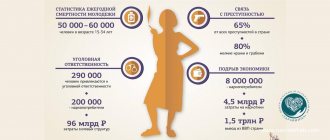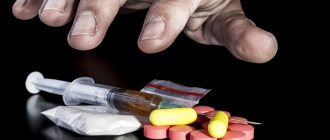Illegal trafficking in drugs and the preparations they contain is punishable under the Criminal Code of the Russian Federation. The production, storage, sale and distribution of narcotic substances in any volume are criminal offenses.
The severity of the preventive measure will depend on the size of the shipment that law enforcement officers found in the possession of the criminal. Below we will look at what large, especially large and significant drugs are under Article 228 of the Criminal Code of the Russian Federation, and what punishment faces for activities related to such substances.
Regulatory framework for drug trafficking
At the legislative level, there are quite a lot of grounds for detaining and initiating a criminal case against a citizen who was found to be in possession of narcotic substances. Let us consider the features of the regulatory framework on this issue.
Article 228 of the Criminal Code of the Russian Federation and liability under it
According to statistics of drug-related crimes, detainees are most often charged with Article 228 of the Criminal Code of the Russian Federation. This regulatory document provides for liability for the illegal storage, transportation, acquisition or processing of drugs or plants containing narcotic substances without the purpose of selling them.
According to this article, the amount of narcotic substances in a detained person can be classified as significant, large and especially large. The punishment will be determined according to these criteria.
Regarding part 1 of Article 228 of the Criminal Code of the Russian Federation, a person who was found with drugs in a significant amount will suffer one of the following punishments:
- a fine of up to 40 thousand rubles or in the amount of the convicted person’s salary for a period of up to 3 months;
- compulsory work for up to 480 hours;
- correctional labor for up to 2 years;
- restriction or imprisonment for a period of up to 3 years.
The second part of this article establishes punishment for crimes that are classified as major. The convict awaits:
- imprisonment for a term of 3 to 10 years and a fine of up to half a million rubles;
- imprisonment for the same period and a fine in the amount of the offender’s salary for the last 3 years;
- restriction of freedom for up to one year.
If during the search narcotic substances were found in a particularly large amount, then as a punishment the judge will establish one of the following preventive measures:
- imprisonment for a term of 10 to 15 years with a fine of up to half a million rubles;
- imprisonment for 10-15 years and a fine in the amount of the wages of the offender for the last 3 years;
- restriction of freedom for one and a half years.
Grounds for exemption from criminal liability under Article 228 of the Criminal Code of the Russian Federation
Article 228 of the Criminal Code of the Russian Federation contains a comment regarding those persons who voluntarily handed over drugs to the police. A person may be released from liability if he:
- brought narcotic substances to the police station on his own;
- assisted law enforcement authorities in finding their seller;
- pointed to citizens who are involved in the transportation or sale of drugs;
- pointed to property that was obtained illegally with money from the sale of narcotic drugs.
Voluntary surrender of drugs assumes that the citizen independently came to the police station and handed over prohibited substances to law enforcement officers and gave evidence. If a person handed over drugs to the police during arrest, then this will no longer be considered a confession. As a result, his sentence may be reduced, but he will still have to bear criminal liability.
Article 228.1 of the Criminal Code of the Russian Federation: features and preventive measures
Drug dealers are tried under Article 228.1 of the Criminal Code of the Russian Federation. The following are considered obvious evidence in a drug trafficking case:
- the actual fact of sales;
- a buyer who is willing to testify against the seller;
- availability of scales, bags for packaging goods;
- photos on a smartphone with packaged goods and places where bookmarks are located.
According to the law, the prosecution will have to prove the fact of sale. But in practice, a person detained with a large amount of narcotic substances is by default tried for sale. It is believed that large doses cannot be purchased for personal use.
The first part of Article 228.1 of the Criminal Code of the Russian Federation provides for criminal punishment for the sale (including transfer) and illegal production of drugs and psychotropic drugs, as well as plants that contain prohibited substances. For such a crime, a drug dealer faces from 4 to 8 years in prison.
The second part of this article prescribes punishment in the form of imprisonment for a term of 5 to 12 years with a fine of up to half a million rubles and restriction of liberty for a term of up to 1 year. Responsibility comes for:
- sale of drugs in public places (transport, places of leisure) or in correctional and state educational institutions;
- sale of drugs using the media or the Internet (the most common methods of selling prohibited substances are instant messengers and the darknet).
Part 3 of Article 228.1 of the Criminal Code of the Russian Federation toughens the punishment in cases where sales or production were carried out by a group of persons by prior conspiracy on a significant scale. The term of imprisonment here ranges from 8 to 15 years, and if restriction of freedom is charged, then its duration increases to 2 years. The amount of the fine under the third part of the article remains unchanged.
The fourth part of Article 228.1 of the Criminal Code of the Russian Federation qualifies the sale of drugs according to the following parameters:
- the crime is carried out by an organized group;
- a person using his official position takes part in the crime;
- a citizen commits a crime against a minor (sells drugs to a teenager);
- sales were carried out on a large scale.
Such a violation of the law is punishable by imprisonment for a term of 10 to 20 years. Also, the convicted person must pay a fine of up to 1 million rubles (or in the amount of wages for the last 5 years). If the crime was committed by an official, he may be prohibited from engaging in certain activities for up to 20 years.
Have a question for a lawyer? Ask now, call and get a free consultation from leading lawyers in your city. We will answer your questions quickly and try to help with your specific case.
Telephone in Moscow and the Moscow region: +7
Phone in St. Petersburg and Leningrad region: +7
Free hotline throughout Russia: 8 (800) 301-39-20
If all of the above crimes were committed on an especially large scale, then the punishment for the perpetrators will be:
- from 15 to 20 years in prison;
- a fine of up to 1 million rubles or in the amount of the wages of the guilty person for the last 5 years;
- prohibition from holding a certain position for up to 20 years.
According to Part 5 of Article 228.1 of the Criminal Code of the Russian Federation, in some cases the prosecutor may request a sentence of life imprisonment.
Article 228.2 of the Criminal Code of the Russian Federation: specifics and who is involved
Article 228.2 of the Criminal Code of the Russian Federation applies to drug crimes committed by doctors, pharmacists, and pharmacists. This regulatory act regulates cases when a drug or plant with a narcotic substance in its composition was improperly disposed of, lost or incorrectly accounted for. The article covers scientists and experts, as well as any other persons who may be responsible for the transportation, use for various legal purposes, sale and accounting of narcotic drugs.
Article 228.2 of the Criminal Code of the Russian Federation provides for the following punishment:
- a fine of up to 120 thousand rubles (or salary for a period of up to one year);
- compulsory work for up to 360 hours;
- officials will be deprived of the opportunity to engage in certain activities for a period of up to 3 years.
When the loss of narcotic drugs, their destruction during transportation or disruption of the production process occurs intentionally, with a mercenary motive, and this entails grave consequences, the punishment is increased:
- a fine of up to 300 thousand rubles or in the amount of the convicted person’s salary for a period of up to 2 years;
- compulsory work for up to 480 hours.
If there are sufficient grounds for this, the prosecutor may request restriction or imprisonment for up to 3 years. In this case, a citizen who commits a crime is deprived of his position for three years.
What do judicial statistics say?
According to the Judicial Department of the Supreme Court of the Russian Federation, every seventh sentence in the Russian Federation is passed under Article 228 . Thus, in 2022, 658.3 thousand people were convicted under all elements of the Criminal Code of the Russian Federation, of which Article 228 with all its parts accounted for 13.4% of all sentences. For comparison: a year earlier the share was 14.3% (total number of convicts - 697 thousand), in 2014 - 15.2% (out of 719.3 thousand). If we take all drug-related charges, then a quarter of all prisoners are imprisoned under them.
The most widespread is Article 228 (acquisition and possession without the purpose of distribution), which in 2022 accounted for 79% of all sentences (69.6 thousand). Drug sales (228.1) account for 21% of convictions.
The majority of those convicted are young people (age group from 18 to 29 years).
The most common sentence for drug-related crimes is imprisonment for 3-5 years. At the same time, only 0.3% of criminal cases are released from punishment .
Art. 72.1 of the Criminal Code of the Russian Federation gives the court the opportunity to oblige the convicted person to undergo drug addiction treatment (if the main punishment is not related to imprisonment). In Art. 82.1 provides for the opportunity for a person sentenced to a real term to voluntarily undergo treatment for drug addiction with a deferred sentence.
How is the size of drugs determined?
Significant, large and especially large sizes are determined based on the dosage of narcotic substances. The size of a single dose of a prohibited drug is determined at the legislative level separately for each type of drug. Let's look at the most popular options:
- Cannabis or marijuana. A significant size is considered to be 6 grams, a large size is 100 grams, and an especially large size is 100,000 grams.
- Hashish or anasha (cannabis resin). Large size – 2 grams, large – 25 grams, extra large size – 10,000 grams.
- Cannabis oil or hashish oil. A significant size is 0.4 grams, a large one is 5 grams, and an especially large one is 1000 grams.
- Spices. Significant size – 0.05 grams, large – 0.25, extra large size – 500 grams.
- Ecstasy. A significant size is considered to be 0.6 grams, a large size is 3 grams, and an especially large size is 600 grams.
- Methamphetamine or Pervintin. Large size – 0.3 grams, large – 2.5 grams, extra large – 500 grams.
- LSD. A significant size is considered to be 0.0001 grams, a large size is 0.005 grams, and an especially large size is 0.1.
- Heroin. Large size – 0.5 grams, large size – 2.5 grams, extra large size – 1000 grams.
- Cocaine. Significant size will be considered 0.5 grams, large – 5 grams, especially large – 1500 grams.
- Morphine. Significant size – 0.1 grams, large size – 0.5 grams, extra large – 100 grams.
This dosage is established by special legislation, which is adjusted every few years. A complete list of narcotic drugs can be found in Decree of the Government of the Russian Federation No. 1002 of October 1, 2012. The determination of significant, large and especially large amounts is carried out at the investigation stage and, in rare cases, already during the trial.
Features of law enforcement
The 2022 report by the Institute for Law Enforcement Problems, “Drug Crimes in Russia: Analysis of Judicial and Criminal Statistics,” notes that consumers in Russia are persecuted more often than distributors . The authors identified “artificial distortion of the masses of seized drugs by law enforcement agencies.” “The quantities of marijuana and hashish most often seized from drug users are just sufficient to qualify the offense as a criminal offense, and these quantities do not significantly exceed the significant amount required to initiate a criminal case,” the report says.
Alexey Knorre, “Drug crimes in Russia: analysis of judicial and criminal statistics”
Researchers call a separate problem the fact that “law enforcement officers understand a drug not as a pure narcotic substance found in a mixture, but as the entire mixture.
According to Alexei Knorre, an expert at the Institute of Law Enforcement Problems of the European University, there are no official statistics on bringing law enforcement officers to justice for falsifying drug cases. However, content analysis of the media over the past 5 years has revealed approximately 500 cases in which a law enforcement officer was detained, arrested, or convicted of drug-related fraud.
How is criminal liability for drugs determined?
Under which part of Article 228 of the Criminal Code of the Russian Federation a detainee will be held depends on several factors:
- the type and quantity of the substance seized from him;
- gravity of the crime;
- the number of persons involved in this case;
- the role of the criminal in the hierarchy and community of drug traffickers.
Most often, charges are brought under Article 228 of the Criminal Code of the Russian Federation and 228.1 of the Criminal Code of the Russian Federation. These regulations apply to the following types of drug crimes:
- illegal acquisition, storage, production or processing, transportation of narcotic drugs or plants containing narcotic or psychotropic substances;
- illegal production, transfer or sale of narcotic substances, plants or psychotropic substances, as well as their analogues.
In some cases, the detainee is held liable under Article 229 of the Criminal Code of the Russian Federation - “Theft or extortion of narcotic drugs.”
What should you do if someone plants drugs on you?
During the search, you were unexpectedly “discovered” with drugs or other prohibited items, we recommend the following:
- Under no circumstances admit your guilt and do not touch the planted bag/package;
- Don't give any explanations until you've spoken to your lawyer;
- Read the protocol carefully;
- If there are any discrepancies in the puncture, be sure to indicate this in the comments;
- If your rights and obligations have not been explained to you, do not sign the corresponding clause of the protocol;
- Before signing the document, do not forget to put the date and time, and also write the phrase: “I do not agree with the arrest, I did not store drugs, they were planted on me.”
What are the consequences for drug use?
The use of narcotic drugs entails administrative liability:
- Using drugs without a medical prescription. The punishment is imposed under Article 6.8 of the Code of Administrative Offenses of the Russian Federation. A drug addict faces a fine of 4-5 thousand rubles or arrest for up to 15 days.
- Drug use by minors under 16 years of age. In this case, the punishment will be imposed on the parents or legal representatives of the child under Article 20.22 of the Code of Administrative Offenses of the Russian Federation. They will face a fine of 1.5 to 2 thousand rubles.
- Drug use in public places. If patrol police suspect that a citizen is using or is already under the influence of drugs in a public place, but he refuses to undergo a medical examination, he may be fined or arrested for 15 days.
- Drug use by a foreigner or stateless person who resides in the territory of the Russian Federation. In such a situation, the punishment is imposed under Article 6.8 of the Code of Administrative Offenses of the Russian Federation. In addition to a fine and arrest, the foreigner also faces deportation to his homeland.
A citizen can be released from punishment only in one case - if he, of his own free will, goes to a special center for helping people with addiction or to a hospital and asks for help to get rid of his addiction to drugs.
If a citizen is suspected of using narcotic substances, he can be sent for a medical examination by an investigator, inquiry officer, judge or other authorized persons who opened a case of an administrative offense. If the detainee refuses to carry out the procedure, then the law enforcement officer has the right to consider that he is hiding important information and bring him to administrative responsibility.
Do the police have the right to search on the street?
Can police officers search citizens on the street? The law allows for personal searches in the following cases:
- It seemed to the police officers that you fit the bill (that is, there is reason to believe that you have committed or are about to commit an offense).
In this case, the police may ask you to show your passport or other identification document. If you do not have your passport or driver's license with you, you must be escorted to the nearest police station.
In this case, the inspection is carried out before boarding a police car - law enforcement officers must make sure that you do not have weapons or any dangerous objects with you that can cause harm.
- The policeman is embarrassed by your external state (unfortunately, in this case everything is left to the subjective perception of the officer).
If your psychophysical signs indicate that you may be in possession of prohibited items or substances, then police officers are required to conduct a personal search.
It is necessary to keep in mind that the search must take place in the presence of two witnesses - necessarily of the same gender as the person being searched.
If during such a search narcotic substances are found on you, the police must draw up a report.









